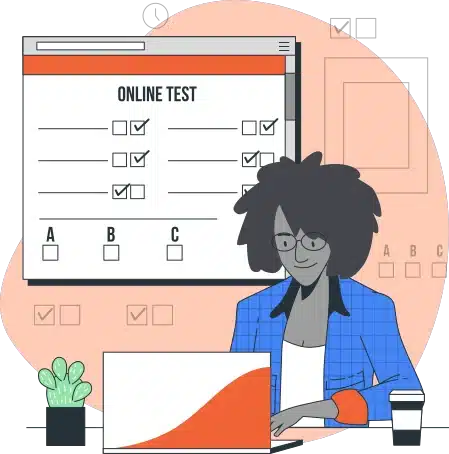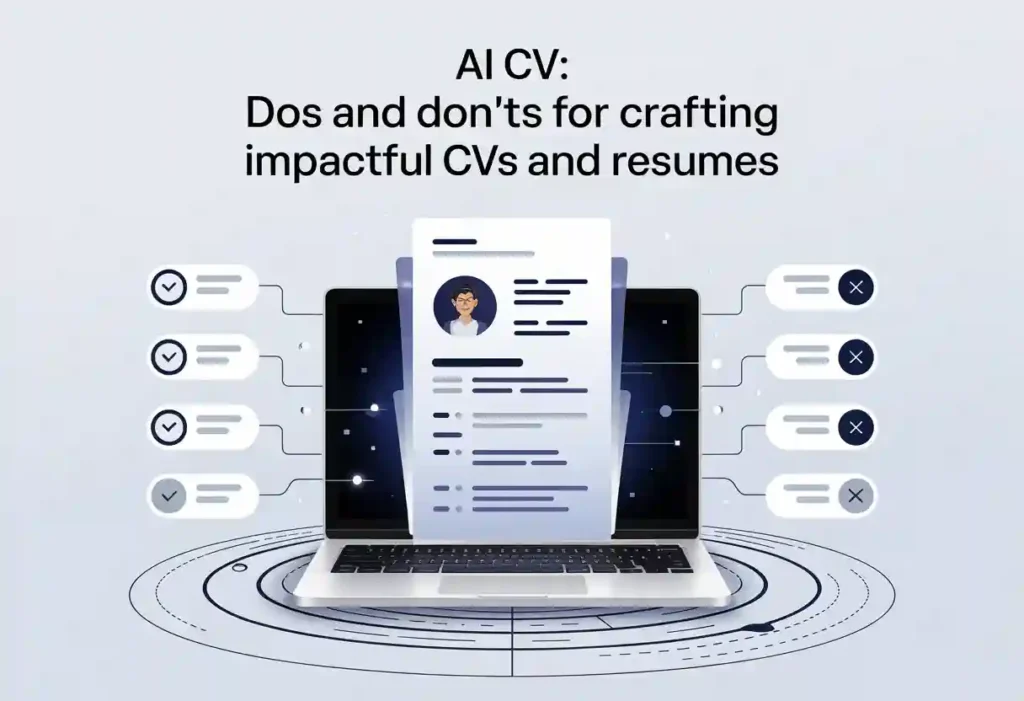Why Career Guidance Matters When You’re Unsure What’s Next
Unfortunately, many struggle to know what to do once formal education ends.
Like many others, you might be wondering what to do next, how to choose a new job.
Seeking advice from career guides is the best way to get yourself on the right track.
If you’ve recently finished your degree, you’re about to graduate, or thinking about switching career paths; this post applies to you.
Aside from family and personal health, work is one of the most critical aspects of your life.
Your work can provide self-satisfaction, an opportunity to grow and learn, or something independent of your home life.
Since work plays a significant role in your life, it’s worth considering what type of job you want.
Professional guidance for your career choices can help with that.
Below are the steps we recommend when choosing a career:
- Take a personality career test
- Decide what’s necessary and what you would compromise
- Make a list of possible jobs
- Choose a career path & research, research, research
- Start training, prepare your CV, and apply for the right jobs
Furthermore, it’s important to remember that choosing a career path is not an exact science.
The results will vary from person to person.
This process could take a few days, months, or years, and you may decide to switch paths multiple times during your working life.
Our career guide should help you progress and grow at any stage of your journey.
What Is Career Guidance?
Career guidance aims to help students, graduates, and professionals make informed decisions that will shape their careers.
The process allows you to shift your understanding of work and opportunities and focus on practical and achievable career choices.
If your dream job is unattainable, a career guide can show you what steps will get you to your goal.
They can make recommendations and point you toward potential employment and training opportunities.
Meanwhile, a career counselor can help you understand what job type suits your personality and lifestyle.
You might have no idea where you want to be in five years.
In that case, career guidance counseling can help you understand yourself, recognize your skills, and set work goals.
Career Guidance Tips for Students and Professionals
If you’re wondering how to choose your career, start by following these six steps:
Take a personality career test
You can use career tests to assess your personality and suitability for specific jobs.
Although these types of personality tests are usually short and simple, they offer a reasonably accurate insight into the best career for you.
While writing this post, I took a quick personality career test.
It recognized my personality as ‘realistic and investigative’ and recommended jobs combining physical and analytical tasks.
Reflecting on my previous job success, I must admit that the result is accurate.
Aside from online career choice tests, ask yourself some helpful questions.

Career test questions to ask yourself
- What are your values?
(Do you prioritize family life, financial stability, charitable causes, etc?)
- What skills do you have?
(Soft skills: communication, management, co-operation) (Hard skills: computer literacy, language, technical skills)
- What are you naturally good at?
(Leading, organizing, problem-solving, socializing)
- What are your interests and hobbies?
(Could your interests become part of your career? i.e., designing, teaching, writing)
Decide what’s necessary and what you would compromise
Your dream job and the ideal employer may not exist in the real world.
So, it helps to decide early on what you’re willing to compromise on and what’s a dealbreaker.
It might help to return to the questions above.
Alternatively, consider the following factors:
- How much money do you need/want to earn?
- How much time off do you want?
- Are you willing to commute or travel for meetings?
- Would you consider working unsociable hours?
- Do you have any commitments that would keep you from working certain hours? (i.e., childcare, evening courses)
- Are there any jobs/companies that you would avoid for moral reasons?
- Do you want/need to work from home?
Answering these questions will guide your career search in the direction you want and help you filter unsuitable jobs.
Make a list of possible jobs.
Now that you know the type of job you want, make a list of possible positions.
It might help to use a careers service to explore job titles and read detailed role descriptions.
During this step, remember to look past the job title and read the description carefully.
While the title might be uninspiring, the role might suit your skills and personality perfectly.
Choose a career path & research, research, research
This is probably the most challenging step, so don’t rush it.
Go through the list of possible jobs you’ve made and reduce the list to one or two options.
If you’re having trouble crossing roles off your list, it’s time to do some further reading.
Consider your possible career choices:
- Offer opportunities for development and training
- Match your strengths and interests
- Would meet your financial needs/goals
- Are part of a growing or declining industry
Also, it is helpful to draw a table.
Put your needs and preferences along the top and the career options in the first column.
As you research each job, put a tick for each requirement it meets.
Tips
At this step, reaching out to your fellow university alums is an outstanding idea.
Also, ask related industry professionals on LinkedIn for their experience in the field.
You can count the ticks when you’ve finished researching all the roles.
This should give you a clear insight into which job will suit you best. Want to learn how to write a resume like a guru? Click the link to get started.
Read More
- How to send a LinkedIn request that gets responses
- 51 LinkedIn summary templates
- Free resume scanner
- Free online CV builder
- Best article on using a resume builder
Start training, prepare your CV, and apply for the right jobs
Now, it’s time to update your CV and search for jobs.
Read the job description closely and consider the ‘essential’ and ‘desirable’ skills.
You might need extra training before applying for your desired role, depending on your career choices.
In that case, search for training courses and internships, or apply for an entry-level position in a similar role.
Once your CV and cover letter are up to date, you can use job search websites or LinkedIn to search for positions.
Alternatively, search a company’s website for vacancies and read our job search tips for guidance and advice.
Learn from CVJury’s Co-founder
You’re probably unsure of the best career path as a student or a young professional.
That’s perfectly normal. I would have appreciated some advice from a career guide at the university.
Unfortunately, career guidance services weren’t a priority in Nigerian schools then.
I was also among the first generation of young people to go to university.
That meant I couldn’t look to my peers and elders for advice.
Instead, I found my career path by trial and error.
That wasn’t easy. I had to be my mentor, critic, and career guidance counselor.
I learned the steps for choosing the right career and the mistakes to avoid the hard way.
I have ten years of experience working with university students from various economic and ethnic backgrounds.
Most youths still make the same career mistakes that I did.
That is, underestimating the importance of career support and mentorship.
Before you launch into a job search, finding a job can be full-time! Take a few minutes to learn from the mistakes and successes I made.
Coping with post-graduation unemployment
I graduated from university in my mid-20s.
After four months of unemployment and completing national service, I began studying for a second degree.
With two degrees to put on my CV, I was guaranteed to find a great job, right?
Wrong.
After completing my second degree, I was still unemployed.
And, with no clear career path, I stumbled into a university lecturing job.
When I came to England in 2012 to study for a PhD, I had access to proper career guidance.
That’s what changed my life.
The organization, facilities, and career support system allowed me to figure out the right job path.
My life after career guidance
Now, I run four successful businesses:
Although small, they are consistently growing, and I’ve two more in the pipeline.
I’m finally in charge of my life, partly thanks to the career guidance advice my mentors gave me.
My experience with career guides and experts inspired NECareerConnect.
I founded this company intending to help undergraduates, postgraduates, the unemployed, and career changers find well-paid jobs more quickly.
To know how to beat today’s graduate unemployment, visit NECareersConnect.
Alternatively, read this post if you want to lay a solid foundation for your career.
Or visit my LinkedIn profile. Create your profile with our free LinkedIn profile builder.
Get out of that dead-end job you’re in now and start living your dreams.
Closing Thoughts
Career guidance for adults and students can help when you are unsure how to choose your career.
Whether you prefer to meet face-to-face with a career guide or read expert tips online, don’t underestimate the importance of a career counselor.
What questions do you have about this post?
Have we missed anything, or would you like more links and tips?
Let us know in the comments below.
We update our posts regularly to reflect the latest tips and techniques for choosing a career, applying for jobs, and preparing for interviews.
The CVJury Team is waiting to hear from you.
Keep Reading
- Interesting high-demand jobs
- Key Employability Skills & Gaining Effective Work-Ready Skills
- Free online resume builder
![13. 5 Top Career Guidance Tips and Expert Advice [1] Top Career Guidance Tips](https://cvjury.com/wp-content/uploads/elementor/thumbs/13.-5-Top-Career-Guidance-Tips-and-Expert-Advice-1-r17quia27jbk34eqq6c263cwn2oxrpsjpjkzaop9a8.webp)


